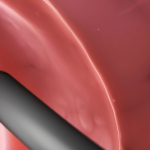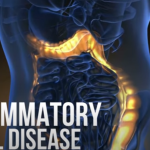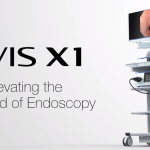Ulcerative Colitis
Ulcerative colitis (UC) is a condition that causes inflammation and ulceration of the inner lining of the rectum and colon (the large bowel). In UC, ulcers develop on the surface of the lining and these may bleed and produce mucus.
The inflammation usually starts in the rectum but can involve the entire colon. If UC only involved the rectum, it is called proctitis. UC never involves the small intestine or stomach.
It is one of the two main forms of Inflammatory Bowel Disease (IBD). The other is Crohn’s disease.
Ulcerative Colitis is a chronic condition. This means that is ongoing and life-long, although most often people experience long periods of remission interspersed with periods of flare-ups. UC can be managed effectively, especially with the use of medication to control the inflammation,
The exact cause of UC is not known. It is thought to be an autoimmune disorder. In people who are genetically predisposed, the immune system becomes overactive against the bowel (possibly the bacteria in the bowel). This could be triggered by environmental triggers like food-poisoning or the use of anti-inflammatory medications like ibuprofen.


Symptoms
The symptoms of UC will vary from person to person, and it can depend on which part of the colon is affected. Symptoms can range from mild to severe and may change over time.
The most common symptoms are:
- Diarrhoea
- Urgency – the need to rush to the toilet
- Cramping pains in the abdomen
- Tiredness and fatigue
- Loss of appetite and weight loss
- Anaemia (reduced level of red blood cells)
Complications
UC can cause additional health problems. More than a third of people with UC develop conditions outside the digestive system, maily affecting the joints, eyes and skin.
- Joints – one out of 10 people with UC will experience inflammation of the joints (arthritis). Some people with UC also develop ankylosing spondylitis, a condition in which the joints in the spine and pelvis become inflamed and stiff.
- Skin problems, such as mouth ulcers, blisters and ulcer on the skin, and painful red swellings, usually on the legs
- Inflammation of the eyes
- Thinner and weaker bones
- Liver inflammation
- Blood clots (including deep vein thrombosis)
- Anaemia
- Colon cancer – if you have had extensive or total colitis (pancolitis) for many years, there is a slightly greater risk of developing cancer in the colon or rectum. Overall, the number of people with IBD who develop bowel cancer is very small, and cancers can be more successfully treated if detected early.
Treatment of Crohn’s
Ulcerative Colitis can often be managed by medication. If your quality of life has been affected by repeated flare-ups and you have not responded well to medication, you may be advised to consider surgery.
The treatment will depend on the type will depend on the severity and location of the inflammation. A range of drugs are used to treat UC. Initially, the aim is to reduce inflammation to bring relief from the symptoms (induce remission). Once the condition is under control, drugs will usually be used to maintain remission and prevent relapse – this is called maintenance treatment.
Many of the drugs used in UC are anti-inflammatory drugs. These include aminosalicylates (5-ASAs), steroids, immunosuppressants such as azathioprine, mercaptopurine and biological drugs like infliximab, adalimumab, ustekinumab and vedolizumab.




